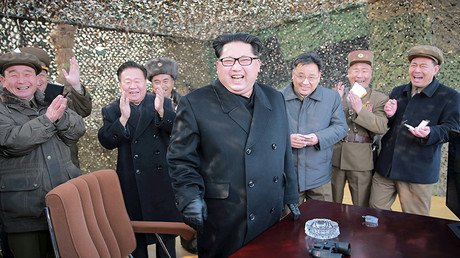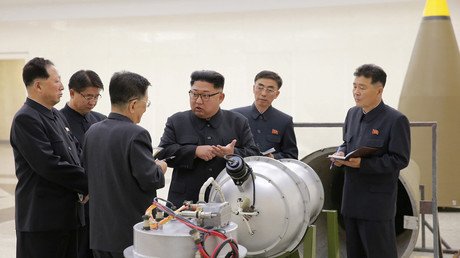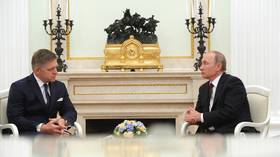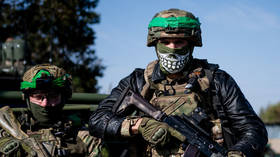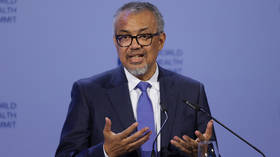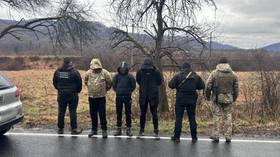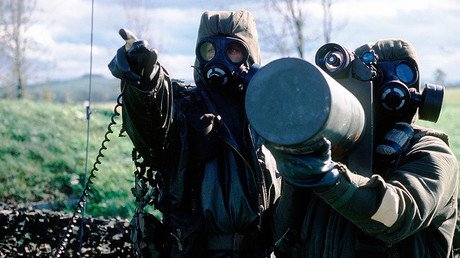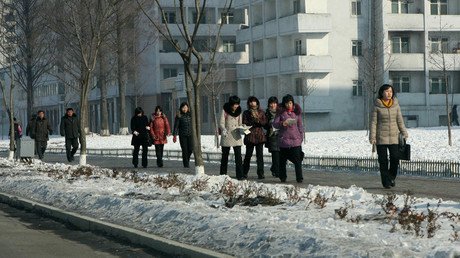Report that North Korean defector has anthrax antibodies feeds into biological weapons scare
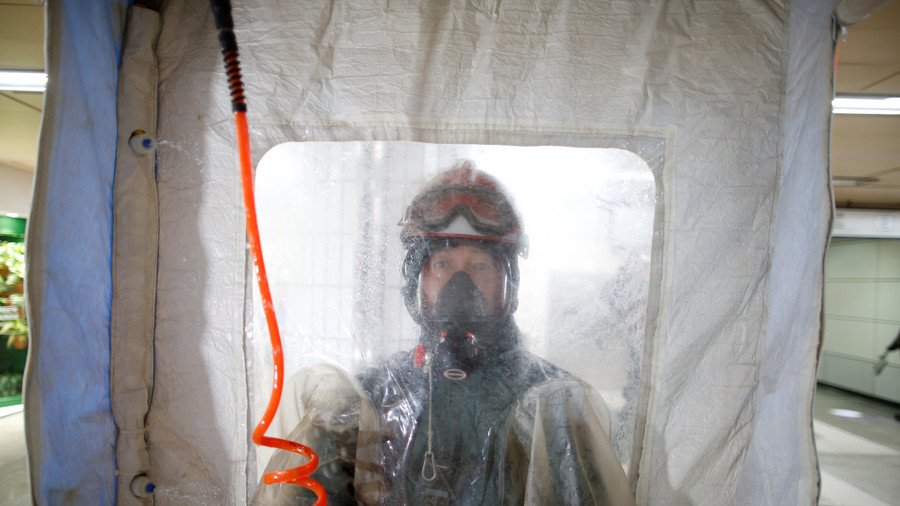
South Korean media have claimed that a North Korean defector was found to have developed antibodies to anthrax before his flight across the border. The report may likely play into the hands of those looking for a pretext for war.
The news was broken by South Korea’s Channel A on Tuesday, citing an anonymous intelligence official.
"Anthrax antibodies have been found in the North Korean soldier who defected this year," the unnamed official said, without revealing the way in which the soldier might have been exposed to the deadly substance, which could be either direct contact or vaccination.
Little is known about the soldier apart from that he was one of four North Korean military servicemen to defect to South Korea this year. The revelation comes against the backdrop of a series of reports suggesting that North Korea has been developing a program to fit biological weapons on intercontinental missiles. An earlier anonymous report by Japan’s Asahi newspaper, that came out last week, claimed that Pyongyang has embarked on “conducting heat and pressure resistance tests to see whether anthrax germs can survive at temperatures of 7,000 degrees, the level an ICBM [inter-continental ballistic missile] encounters when it reenters the Earth atmosphere.”
The concerns of the pariah state getting hold of biological weapons were echoed in the recently released US National Security Strategy, claiming that Pyongyang has been striving to obtain “chemical and biological weapons which could also be delivered by missile.”
North Korea, meanwhile, rejected all the allegations and reiterated its commitment to the Biological Weapons Convention (BWC). It accused Washington of trying to forge a pretext for a military incursion, like it did in 2003 to justify its military aggression in Iraq.
The comparison has merit, as even the alleged biological weapon is exactly the same. At the fateful UN Security Council meeting on February 5, 2003, the then-US Secretary of State Colin Powell brandished a model vial of anthrax to illustrate the alleged danger coming from Iraq under Saddam Hussein, which according to Powell could have produced some 25,000 liters of anthrax. The word “anthrax” first made headlines in October 2001, when five Americans died and over a dozen fell sick due to exposure to powdered anthrax sent through the mail. In the most prominent case, a letter with anthrax was delivered to the office of Democratic Senate majority leader Tom Daschle, shutting down the whole Senate.
The letters that also contained death threats were linked by the media and the George W. Bush administration to Iraq at the time.
"The Iraqi regime has plotted to develop anthrax and nerve gas weapons for over a decade," Bush said in his State of the Union address in January 2002, noting that the US would act first in the face of a possibility of such an attack.
Later, it was revealed that the man behind the toxic letters was US citizen Bruce Ivins, who was working in a military biodefense lab and had no relation to Iraq. The rest of Powell's claims about Iraq's supposed weapons of mass destruction found no proof either, with Powell later admitting that he was misled by intelligence community and the speech became a “blot” on his record.
While the US officials, spearheaded by UN envoy Nikki Haley, are upping the rhetoric and threatening to “utterly destroy” North Korea if war breaks out, or in case of Republican Senator Lindsey Graham, calling on Pentagon to move US servicemen's families from South Korea as though the war is imminent, Russia and China have been advocating restraint, warning of disastrous consequences to the whole region, first and foremost to Washington’s ally South Korea, of a potential military confrontation. The so-called double-freeze plan, championed by Moscow and Beijing, envisions the simultaneous halt of war games regularly held by the US and allies and the suspension of the nuclear and missile program run by Pyongyang. The plan, however, was outright rejected by Washington in August.
